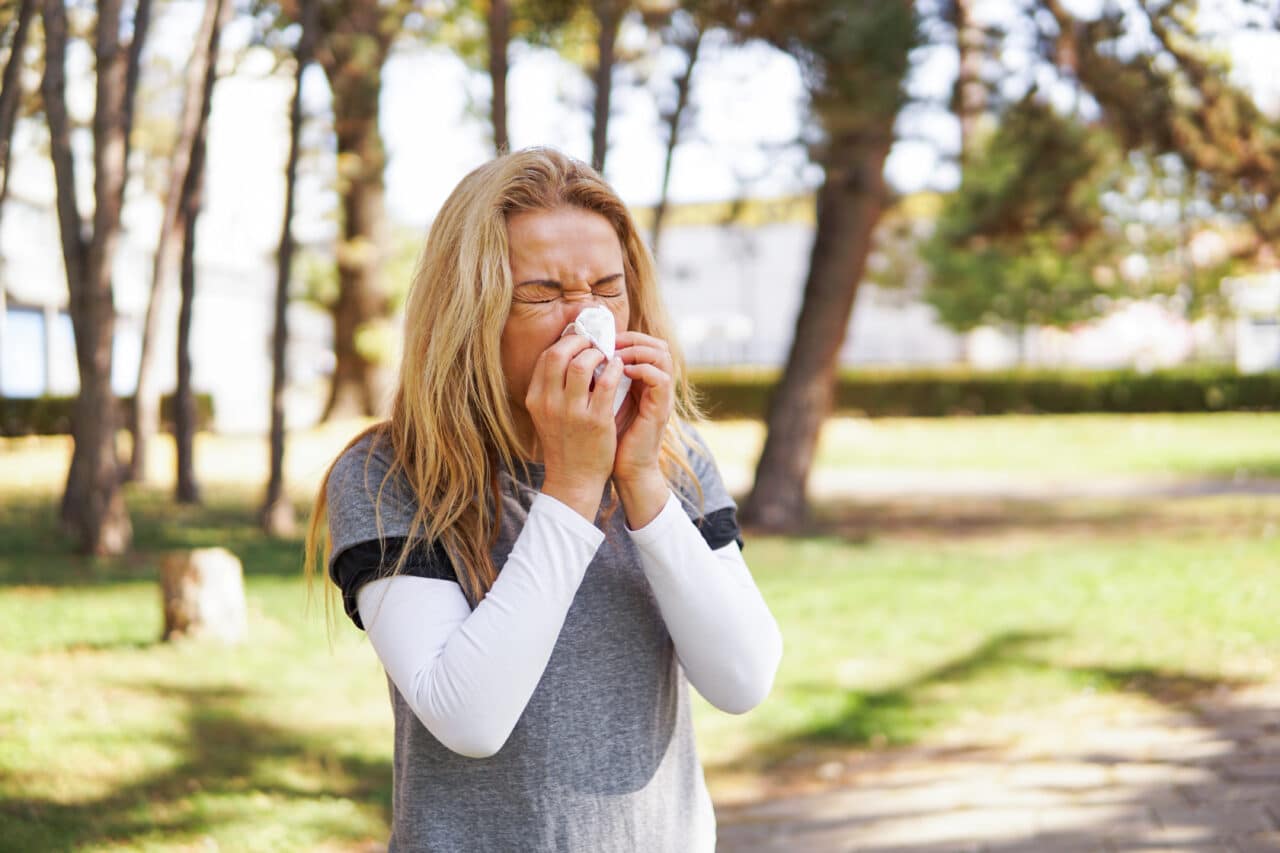
While the World Health Organization may have officially declared the global COVID pandemic over last May, summer colds aren’t going anywhere. This common illness could affect even more people now that the mask-wearing and social distancing that helped slow their spread in recent years has ceased.
Getting sick during summer allergy season can make it hard to figure out what’s going on with your body—are you suffering from allergies or a cold? Although they have some symptoms in common, there are a few key differences.
Where Does Your Body Hurt?
Sneezing, a stuffy nose, headache or fatigue are symptoms that allergies and colds share. However, allergies often cause itching in the nose, throat and eyes, while colds do not. Colds involve a sore throat and body aches, which are absent from allergies.
Are You Running a Fever?
Allergies don’t cause a fever, so you likely have a cold.
Do You Have a Dry Cough?
A cough is common with allergies and colds, but one that tickles the back of your throat is a sign you have allergies. If your cough is wet and hacking, producing mucus that thickens and yellows, you’re probably experiencing a cold.
How Long Have You Had Symptoms?
The common cold usually lasts about a week, but summer allergies can persist for weeks or months if you continue to encounter your symptom triggers.
How To Feel Better
Whether you’re dealing with a cold or allergies, you can try a few things at home for relief. To soothe a stuffy nose, use a neti pot to rinse your nasal passages with saltwater. Use over-the-counter medications targeted to cold or allergy sufferers—ibuprofen (Advil) or acetaminophen (TYLENOL®) is great for body aches caused by colds, and oral antihistamines (Claritin®, Allegra® or ZYRTEC®) are ideal for allergies. Remembering to rest more can also help.
Want to learn more about how to keep you and your family healthy this summer? Get started with an allergy test or a general checkup, today!
“Had a great experience. Got in very quick and felt safe with covid protocol! Everyone was extremely nice.”